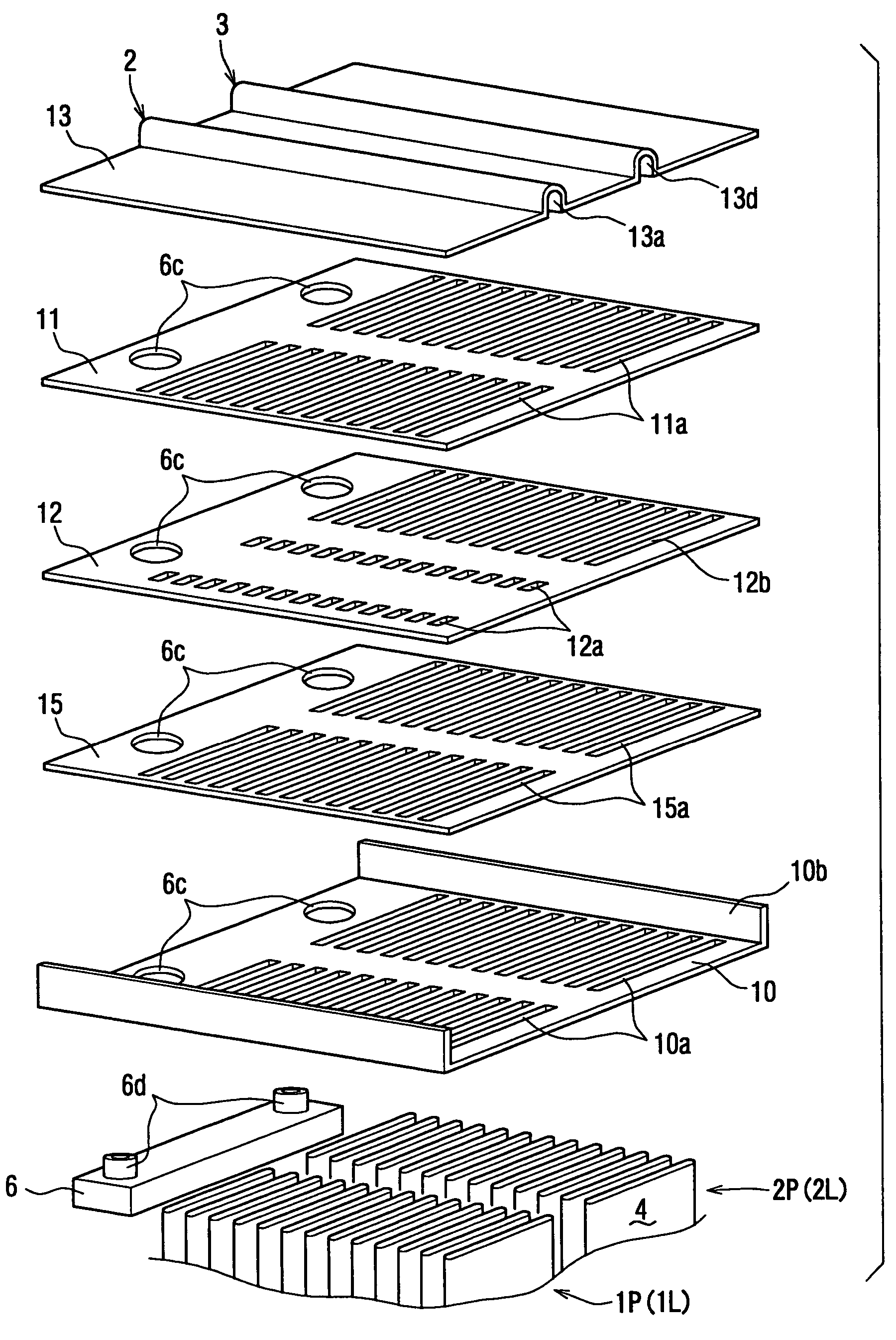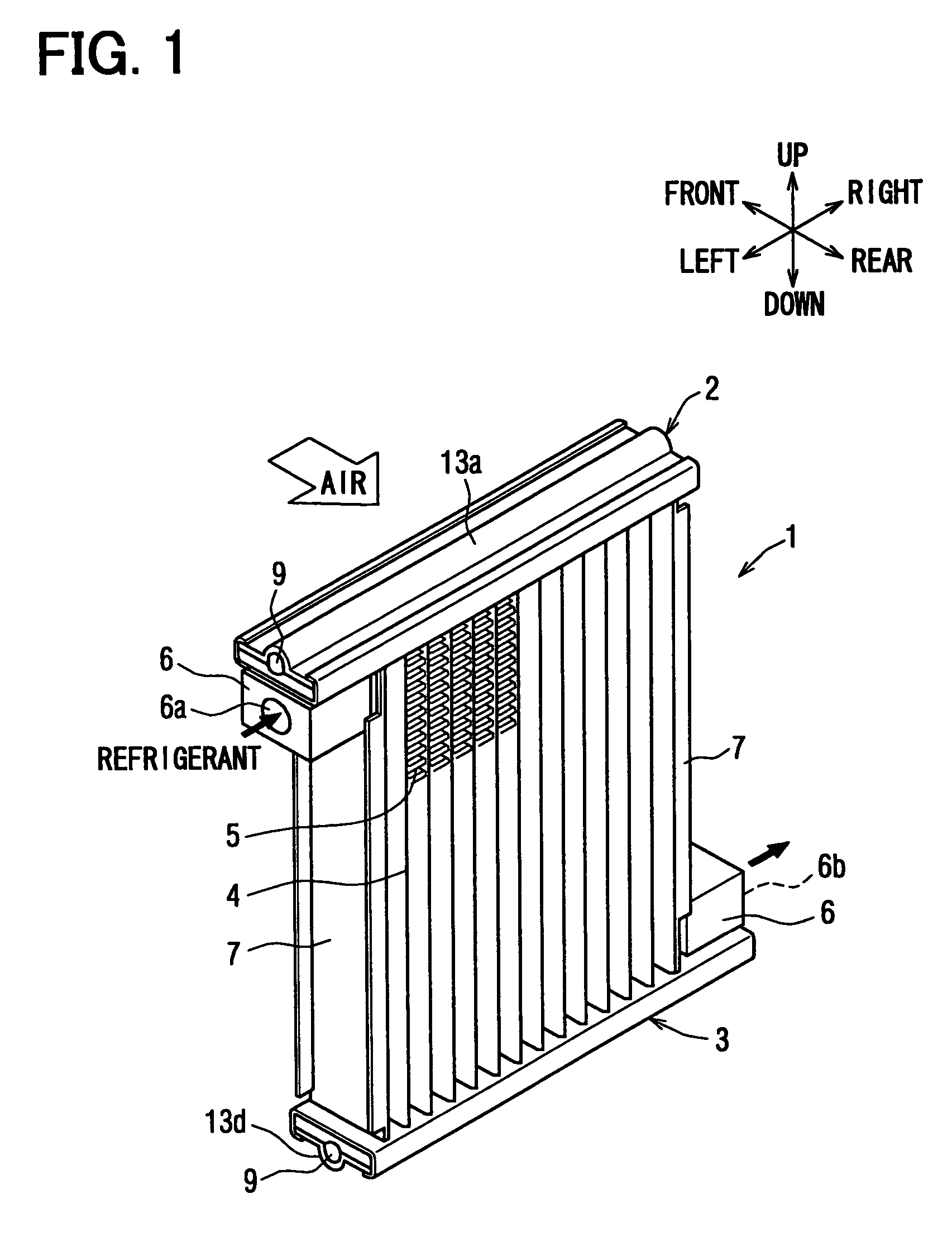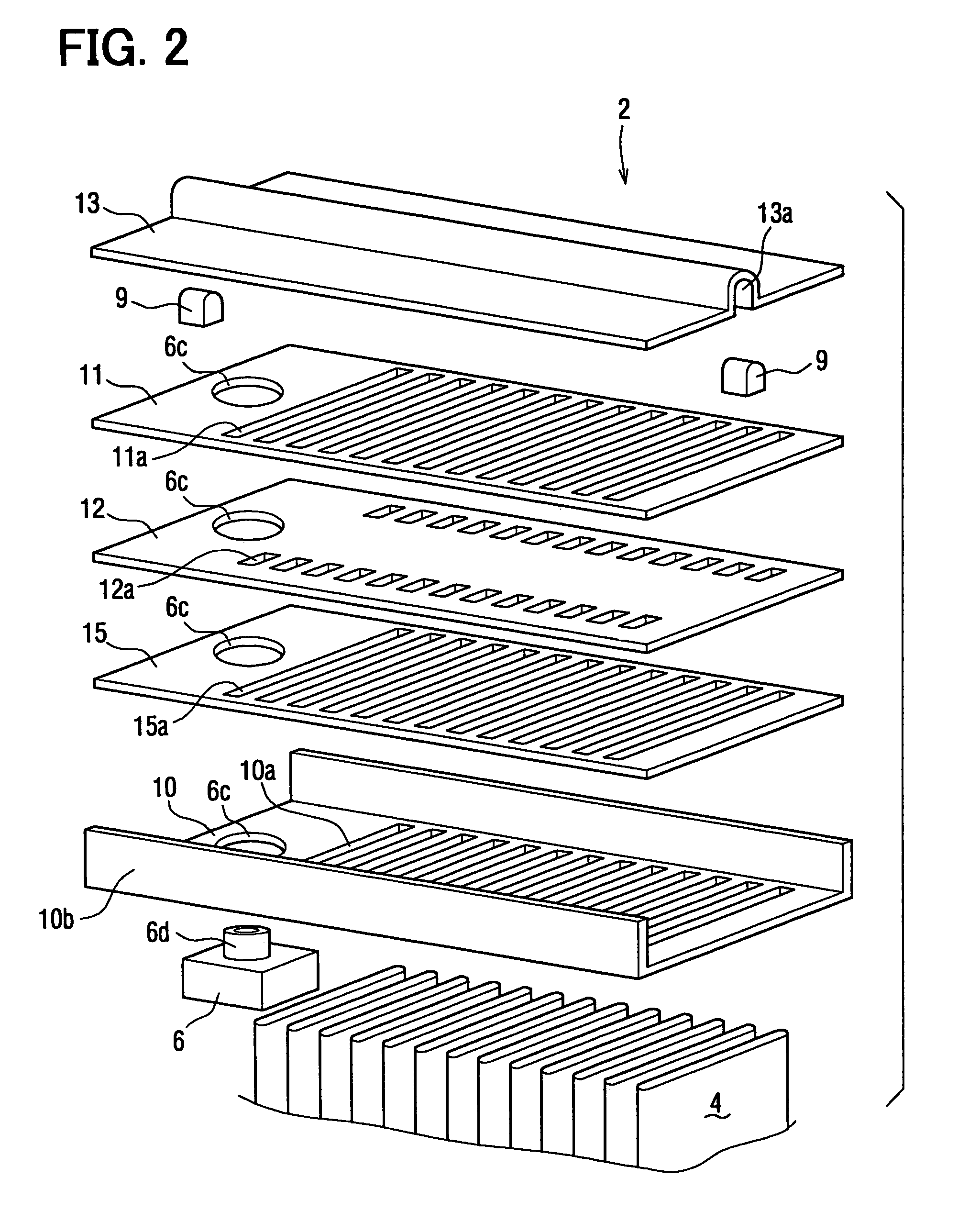Heat exchanger
a heat exchanger and heat exchanger technology, applied in indirect heat exchangers, lighting and heating apparatus, stationary conduit assemblies, etc., can solve the problems of uniform air temperature flowing from the refrigerant evaporator, deterioration of refrigerant distribution performance, and increase of pressure loss in the refrigerant evaporator, so as to improve the heat exchange performance between the first and second mediums, improve the distribution of mediums into tubes, and improve the effect of heat exchange performan
- Summary
- Abstract
- Description
- Claims
- Application Information
AI Technical Summary
Benefits of technology
Problems solved by technology
Method used
Image
Examples
first embodiment
[0040]In this embodiment, a heat exchanger of the present invention is typically used as a refrigerant evaporator. FIG. 1 shows a refrigerant evaporator 1 of the first embodiment, in a state where the refrigerant evaporator 1 is actually used in a refrigerant cycle system. In this example shown in FIG. 1, the refrigerant evaporator 1 is arranged as shown in FIG. 1, in the front-rear direction, the right-left direction and the up-down direction (vertical direction). Here, the front-rear direction corresponds to a tank width direction, the right-left direction corresponds to a tank longitudinal direction, and the up-down direction corresponds to a tube longitudinal direction. However, the using arrangement of the refrigerant evaporator 1 can be suitably changed.
[0041]The refrigerant evaporator 1 can be suitably used for a super-critical refrigerant cycle using CO2, for example. In the super-critical refrigerant cycle, the pressure of high-pressure side refrigerant becomes equal to or ...
second embodiment
[0070]FIG. 8A is a perspective view showing a refrigerant evaporator 1 according to the second embodiment, and FIG. 8B is an enlarged perspective view showing a part of a core portion of the refrigerant evaporator 1 in FIG. 8B. In the above-described first embodiment, refrigerant flows in one way in the tube longitudinal direction through all the tubes 4 of the core portion without being U-turned. However, in the second embodiment, the tubes 4 are arranged in two lines in a flow direction of the second medium (e.g., air) so that refrigerant flows through all the tubes 4 on one line and flows through all the tubes 4 on the other line after being U-turned.
[0071]In the second embodiment, the refrigerant evaporator 1 includes an upper tank portion 2, 3, a refrigerant turning portion T and the core portion between the upper tank portion 2, 3 and the refrigerant turning portion T. The upper tank portion 2, 3 includes an upstream tank portion 2 and a downstream tank portion 3. The upstream...
third embodiment
[0092]FIG. 13 is a perspective view showing a refrigerant evaporator 1 according to the third embodiment, and FIG. 14 is a disassembled perspective view showing a refrigerant turning portion T of the refrigerant evaporator 1 in FIG. 13. The refrigerant evaporator 1 shown in FIG. 13 is generally used in a position indicated by arrows in the up-down direction, the right-left direction and the front-rear direction. For example, a refrigerant turning portion T in FIG. 13 is used as the bottom of the evaporator 1, and upstream and downstream tank portions 2, 3 in FIG. 13 are used as the top of the refrigerant evaporator 1.
[0093]In this embodiment, the structures of the upstream and downstream tank portions 2, 3 are similar to those of the above-described second embodiment. The refrigerant turning portion T is formed by stacking a header plate 14, a first space forming plate 15, a crossing plate 16, a second space forming plate 15′ and a tank header plate 17, on a temporarily assembled co...
PUM
 Login to View More
Login to View More Abstract
Description
Claims
Application Information
 Login to View More
Login to View More - R&D
- Intellectual Property
- Life Sciences
- Materials
- Tech Scout
- Unparalleled Data Quality
- Higher Quality Content
- 60% Fewer Hallucinations
Browse by: Latest US Patents, China's latest patents, Technical Efficacy Thesaurus, Application Domain, Technology Topic, Popular Technical Reports.
© 2025 PatSnap. All rights reserved.Legal|Privacy policy|Modern Slavery Act Transparency Statement|Sitemap|About US| Contact US: help@patsnap.com



